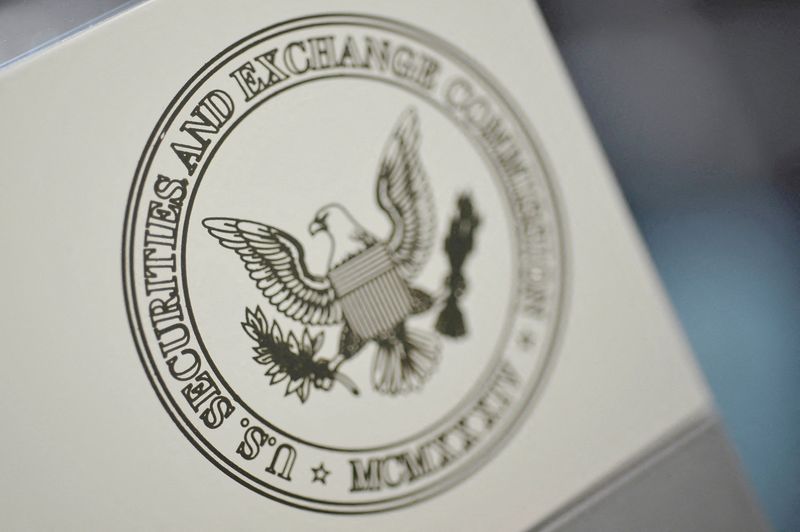New Jersey hedge fund, founder settle SEC charges over improper trades
2023.04.03 16:19

© Reuters. FILE PHOTO: The U.S. Securities and Exchange Commission logo adorns an office door at the SEC headquarters in Washington, June 24, 2011. REUTERS/Jonathan Ernst
By Chris Prentice
NEW YORK (Reuters) – A New Jersey hedge fund and its founder have agreed to pay $19.3 million to settle charges by the U.S. Securities and Exchange Commission (SEC) that they improperly traded in fixed-income securities.
Chatham Asset Management and its founder, Anthony Melchiorre, have agreed to settle charges they violated U.S. laws designed to protect investors when they bought and sold bonds in American Media Inc for their clients, the SEC said in a statement.
From 2016 through 2018, one Chatham-advised client sold bonds in the magazine and tabloid publisher, whose publications include US, Soap Opera (NASDAQ:) Digest and Woman’s World, while another client purchased the same bonds through broker-dealers as the hedge fund sought to address “portfolio constraints,” the SEC said.
Chatham and Melchiorre proposed prices for the trades, effectively increasing the price of AMI’s bonds relative to those of similar securities, the SEC said. That also boosted the net asset values of their clients’ funds during that time period, garnering more in fees.
A representative for Chatham and Melchiorre, who did not admit or deny the SEC’s charges, said the firm “sought, received and followed advice” from an independent compliance consultant on the matter.
“The consultant reviewed Chatham’s trading annually for compliance with applicable laws and did not alert the firm to any issues,” the statement said, noting the funds have since been closed and the firm is focused on generating returns for clients.
Chatham and Melchiorre agreed to pay civil penalties of $4.4 million and $600,000, respectively, and to pay another $14.4 million jointly in disgorgement and interest.
“We remain vigilant in rooting out such misconduct in the marketplace, including in the fixed income sector, where investments can be less liquid,” Sanjay Wadhwa, the SEC’s deputy enforcement director, said in the statement.








